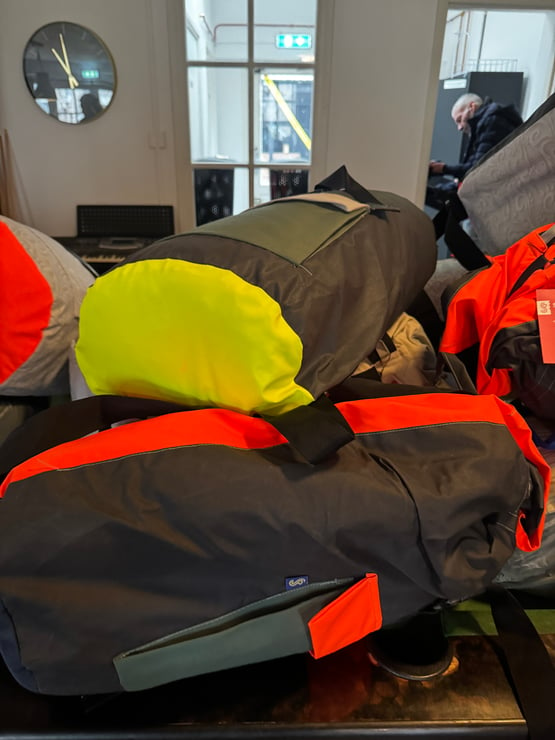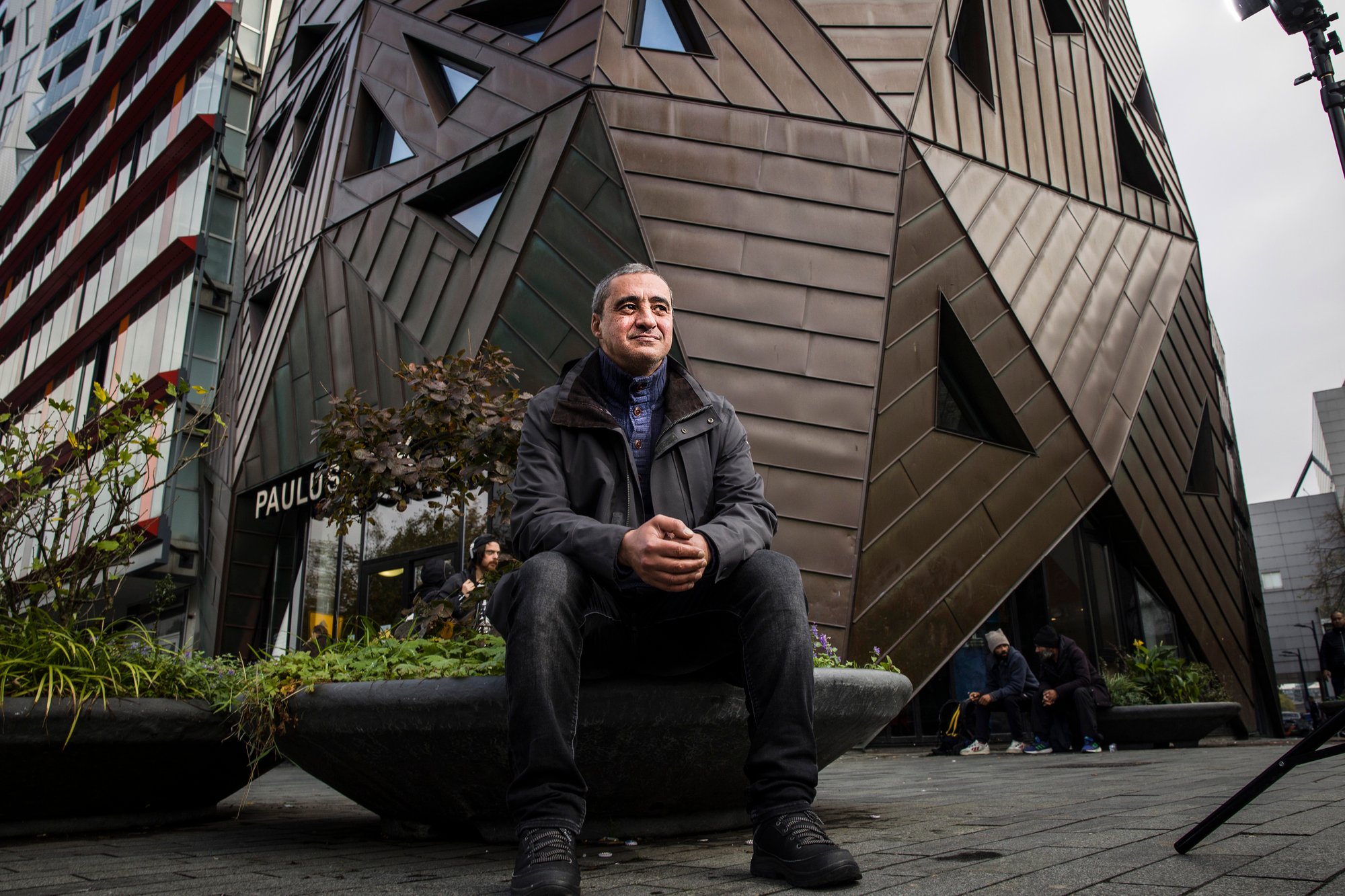For decades, the Pauluskerk in Rotterdam has been a beacon of hope and help for people on the margins of society. But as winter approaches and shelter options become increasingly scarce, the need is higher than ever. With the elimination of the national bed-bath-bread scheme on Jan. 1, 2025, a large group of undocumented people will end up completely on the streets. “This is unacceptable,” argues Thamar Kemperman, involved in the Paulus Church. “Homelessness is a housing problem, not a healthcare problem. We need to address this.”
The Sheltersuit for the night: a temporary solution
To call attention to the growing homelessness, last year the Pauluskerk organized an “outdoor sleep out action” at Rotterdam Central Station. This year the action will be repeated. This time with a clear focus: the undocumented who will soon have nowhere to go. “Sheltersuits are a temporary emergency solution,” Kemperman explains. “They are meant to keep people warm and dry if the night has to be spent on the streets. But this is not the solution to the structural problem. It is degrading that such aids are needed.”
Sheltersuit Foundation is supporting the action by once again providing suits. Dozens of suits were distributed last year, and this year Pauluskerk expects to need at least as many. “People often lose their stuff on the street, or it gets stolen. That's why we distribute the Sheltersuits carefully. It's not a disposable product, but a valuable tool that can really make a difference.”
See them as people, like you and me. A smile, a short conversation - that can already make a difference.
- Thamar Kemperman -
The impact of abolishing bed-bath-bread
The impending abolition of the bed-bath-bread scheme directly affects the most vulnerable group: undocumented migrants. While other major cities are organizing their own shelter, Rotterdam is lagging behind. “This means that literally dozens more people will soon have to sleep on the streets here,” said Kemperman. The regulation offered not only shelter, but also guidance towards a future perspective, such as an asylum procedure or return to the country of origin. “That safety net is disappearing, which means there will be no more through-flow. People will get stuck and move further and further away from help.”
That safety net disappears, eliminating the possibility of flow.
- Thamar Kemperman -
A housing problem, not a healthcare problem
The conversation about homelessness often gets stuck in bureaucracy. “The systems in the Netherlands approach homelessness as a healthcare problem,” Kemperman explains. “You need a diagnosis first, or an indication, before you can get help. But homelessness is a housing problem. People need affordable housing, not a stamp or a procedure first.”
Pauluskerk advocates a fundamentally different approach. “It is essential to have permanent, accessible shelters for everyone. No one should be sleeping on the streets, especially not in a rich country like the Netherlands.”
The human face of homelessness
Besides practical help, such as handing out Sheltersuits and providing coffee and a warm place to stay, Kemperman stresses the importance of humanity. “The most distressing thing about being homeless is how you are dehumanized. People look away, ignore you, or treat you like you're worth less. That's so damaging.” She urges everyone to look at homeless people differently. “See them as people, like you and me. A smile, a short conversation - that can already make a difference.”
Pauluskerk remains committed to this group, but it is a drop in the bucket. “We hope our actions will wake up politicians,” concludes Kemperman. “Homelessness needs to be higher on the agenda. It is time for structural solutions and for restoring dignity. Because housing is not a luxury, it is a human right.”
Would you like to see the action of the Pauluskerk and Sheltersuit? Go to sheltersuit.com/donate and make a difference.


















